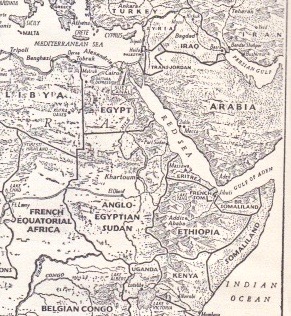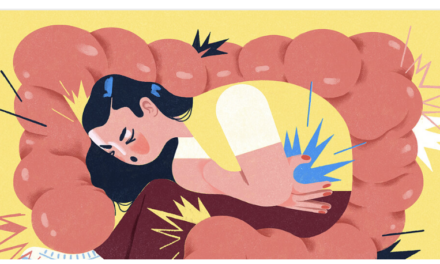By William J. Blake
With a sheltering highland on the border between desert and equatorial forest and an intermediate zone for flora, Ethiopia could be truly fertile and prosperous, given better methods of cultivation. The Soviet botanist Vavilov maintains that most of the plants used in European farming originated here. Certainly coffee did.
The only economically important crop, coffee, stands at about 20,000 tons annually. Cattle, sheep, goats, and the small but strong and handsome Abyssinian horse form the basis of animal economy.
The Italians, during their brief control, listed the resources of the country in iron, potash, cabinet woods, gold, and many other products. They have not yet been exploited.
Ethiopia was neutral in World War I, but during the end of the conflict the feudal lords successfully revolted against the Emperor (Led Yasu), who had himself usurped the throne from empress Zauditu. One of these feudal lords, Ras Tafari (later Emperor Haile Selassie) became regent of the kingdom with the Empress as the nominal ruler under his control.
With royal authority thus divided, the feudal lords exploited their opportunity to make themselves almost independent. Ras Tafari pursued two policies: he increased central power at home, and in order to secure independence, he struggled for and eventually obtained, membership in the League of Nations (1923) despite British opposition.
Following his protest against a British-Italian agreement for spheres of influence in his country, the Italians sent the Duke of Abruzzi to treat with him. In 1930, the Empress dief and Ras Tafari was finally crowned Emperor (Haile Selassie) after 14 years of effort. He consolidated the state, suppressing rebellion through provincial governors. With strong faith in the League, he ignored Italy’s excessive demands.
Italy, however used an obscure border incident at Wall as a pretext for invading the country in 1934. Flouting the findings of the League, the Italians executed their premeditated plan to conquer the country, m after a short campaign (October 1935 to May 1936). While the League condemned Italy as an aggressor, it imposed only iliomited and ineffectual “sanctions” and gave de facto (not de sure) recognition to the Italian conquest. Italy proceeded to annex Ethiopia to King Victor Emmanuel’s empire.
During the Italian invasion, the British and French Foreign Ministers had granted partition rights to Italy, but an aroused British and French public opinion prevented the implementation of their plan. Emperor Haile Selassie, exiled in England, waited for the coming of justice. In 1940, following the outbreak of war between Britain and Italy, the Italian regime in Ethiopia fell after a rapid Allied campaign. Haile Selassie regained his throne, and two years later concluded arrangements with Britain that gave her many special privileges in the redeemed land.





